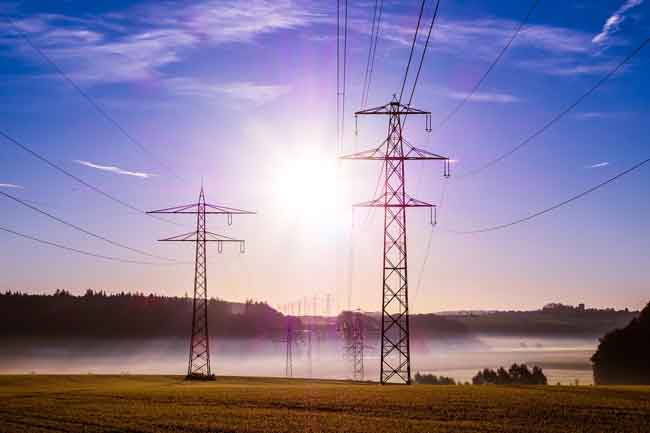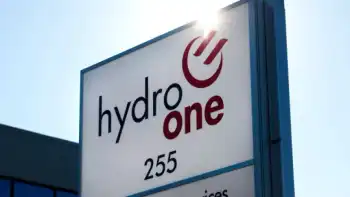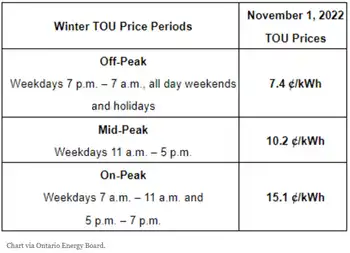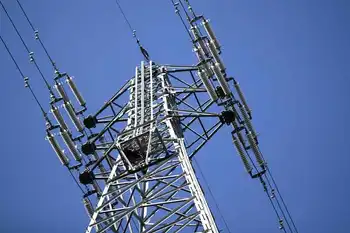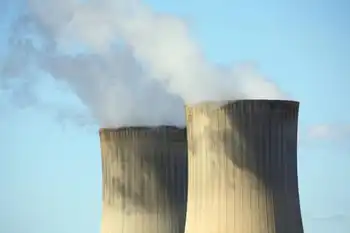Army to turn trash into power
By San Francisco Chronicle
NFPA 70b Training - Electrical Maintenance
Our customized live online or in‑person group training can be delivered to your staff at your location.

- Live Online
- 12 hours Instructor-led
- Group Training Available
The Army is preparing to deploy to Iraq two 4-ton biomass refineries designed to turn piles of trash into electricity. Each can run for 20 hours on a ton of trash, producing enough power to light a small village.
The novel machines were built by defense contractors and Purdue University scientists as part of the Army's push to reduce troops' diesel fuel use in Iraq, where convoys are frequently targeted by insurgents.
Army planners say cutting the fuel needs of the generators that power military encampments will mean fewer trips into harm's way for soldiers who drive tanker trucks. It will also free up more fuel for tanks, Humvees and other military equipment.
But first the machines, dubbed "tactical biorefineries" by the military, must perform well during their six-month test in a combat zone. They'll face windblown dust and grit, 120-degree temperatures and the risk of breakdowns when they arrive in the Baghdad area in early May.
"We want to put them under those kinds of stresses and see how they do. We want commanders to say, 'This thing is really worth looking at,'" said Jerry Warner, CEO of chief contractor Defense Life Sciences LLC of McLean, Virginia.
In 2006, the Army commissioned Defense Life Sciences, Purdue biomass experts and three other companies to build a prototype refinery. An updated version completed last year at a cost of about $1 million now sits in an unheated warehouse on Purdue's West Lafayette campus awaiting a final shakedown before deployment. The same team is currently building the second unit.
Nate Mosier, an assistant professor of agricultural and biological engineering who is overseeing the work at Purdue, said the refineries are unique in their ability to burn multiple fuels at once. They're also portable, designed to fit snugly into a standard shipping container.
The trash-to-energy process begins when unfiltered garbage is fed into a chute, falling into a grinder that chews the trash into small pieces.
Organic food waste heads to a bioreactor where an industrial fermenting process produces ethanol. In another chamber, plastic, cardboard and other trash items are heated to create low-grade propane or methane.
Those gases and the ethanol are then combusted in the refinery's modified diesel engine, which powers a 60-kilowatt generator.
About 10 percent of the electricity the refineries produce are used for the machines' power needs, but the remaining 90 percent would be available for the troops.
Beyond the military applications, the refineries could provide temporary power after natural disasters. Mosier said they could be set up near hospitals or shelters to supply power and light, while feeding off the trash those locations produce.
If they work well, a fleet of them could be built and sent to Iraq, Afghanistan or other combat zones, said Dan Nolan, who works on a program overseen by the Office of the Secretary of Defense that's trying to reduce the military's use of fossil fuels.
"This is probably the most ambitious program we've done. We think there's a high probability of success. But until we put it out there, and into the operational vacuum, we won't really know," Nolan said.
But even if they do work, the refineries will only save the military a drop in its fuel bucket. Each of the refineries should save about 115 gallons of diesel fuel a day, Nolan said. The U.S. military brings 1.29 million gallons of fuel to Iraq each day.
Another effort to reduce fuel consumption is a 5-kilowatt hybrid electric power station being tested by a contractor in California. It uses a conventional generator paired with wind turbines, solar collectors and battery storage capacity.
The biomass refineries are the first portable refineries of their kind, said John Scahill, a project manager with the Department of Energy's field office in Golden, Colo., which works on biomass projects like those that are part of the refineries.
He said that if the demonstration in Iraq is a success, it could catch the eye of private investors looking for ways to hold down their costs amid rising energy prices.
"This type of technology is going to find many more opportunities," Scahill said. "Businesses that generate some biomass waste stream have the ability to take that and convert it into something useful."





